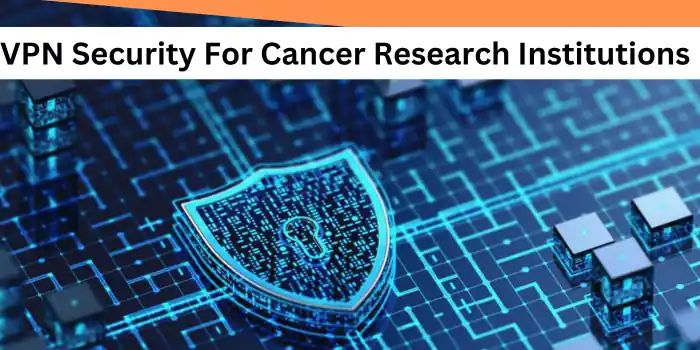
Cybersecurity is a top priority for all firms in the modern digital age. Protecting sensitive data is a moral requirement for institutions engaged in cancer research rather than merely an issue of compliance. In order to assist ensure that crucial research is secure, this article digs into the significance of VPN (Virtual Private Network) security for cancer research organizations, detailing its advantages and answering common queries.
1. Understanding The Significance Of VPNs For Cancer Research
The data that is handled by cancer research organizations is extremely sensitive and confidential and includes patient records, test results, and proprietary research. Data transfer across a secure channel is made possible by VPNs, making it more difficult for unauthorized parties to intercept or compromise this important data.
2. Enhanced Data Encryption
The encryption of data is one of the main advantages of utilizing a VPN. Data sent by researchers using a VPN is nearly unintelligible to anyone seeking to intercept it. Patient information and research discoveries are kept private thanks to this encryption.
3. Shielding Against Cyber Threats
Because of the significance of their data, cancer research institutions are desirable targets for hackers. The institution’s IP address is concealed through VPNs, acting as a barrier that makes it more difficult for hackers to conduct attacks like Distributed Denial of Service (DDoS) or data breaches.
4. Remote Access Security
VPNs provide a safe means for researchers to access data and systems from any location in an era of remote work and collaboration. VPNs make ensuring that access to critical research stays protected, whether working from home or collaborating with colleagues around the world.
5. Protecting Intellectual Property
Innovative anti cancer medicines are frequently developed as a result of cancer research, which frequently yields ground-breaking findings. A VPN protects intellectual property by avoiding data theft, guaranteeing that the institution has control over its research discoveries, and ensuring that the potential for developing innovative and life-saving anti-cancer drugs is safe.
6. Data Integrity and Privacy
In research on cancer, maintaining data integrity is crucial. VPNs not only encrypt data but also guarantee that it is transmitted unmodified. This ensures the precision and dependability of study findings, which is essential for creating powerful anti-cancer drugs.
7. Regulatory Compliance
Cancer research institutions must adhere to strict data protection regulations. VPNs assist in meeting these compliance requirements, such as HIPAA in the United States and GDPR in the European Union, by providing robust security measures to protect patient data.
8. VPN Selection Criteria
Choosing the right VPN service is essential. Factors such as encryption protocols, server locations, and a no-logs policy should be considered when selecting a VPN provider for cancer research security needs.
9. VPN Implementation Best Practices
To maximize the benefits of VPN security, cancer research institutions should follow best practices for implementation. This includes proper configuration, regular updates, and training researchers and staff on VPN usage.
10. Case Studies: Real-World Applications
The practical advantages of employing VPNs can be better understood by looking at real-world examples of cancer research facilities that have effectively adopted VPN security. These success tales demonstrate how VPNs have been essential in protecting data and research results, especially those pertaining to anti-cancer medications.
These extra titles and content offer a more thorough understanding of the significance of VPN security for organizations engaged in cancer research, encompassing a range of topics from data integrity to legal compliance and actual implementation.
Are All VPNs Equally Secure?
Can A VPN Slow Down Research Activities?
Are VPNs Legally Compliant For Research Institutions?
Can VPNs Protect Against Malware And Viruses?
Conclusion
VPNs are an essential tool in the field of cancer research, where data security and secrecy are critical. They not only encrypt critical data but also defend it from cyber dangers, enabling secure remote work, and safeguard intellectual property.
Selecting a trustworthy VPN service can make a major difference in ensuring that cancer research institutions can carry on with their critical work without worry of data breaches or cyberattacks. These organizations not only secure their data but also contribute to the global fight against cancer by investing in VPN security.






